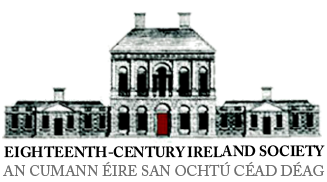I am a DPhil student in English Language and Literature at the Queen’s College, University of Oxford. My thesis explores the literary connections between Italy and Ireland in the Romantic Period. It hinges on the recuperation of previously unexamined manuscript material that circulated across literary coteries in Ireland, England, and Italy, with a focus on the neglected Irish members of the Byron-Shelley circle: Lady Mount Cashell, George William Tighe, and John Taaffe.
Favourite archive:
The Royal Irish Academy
Favourite gallery/museum/heritage centre:
The Uffizi gallery
Most exciting place/time period in the 18th century:
The Moira House salon, Dublin, in the 1790s
Best online resource for 18th century:
‘Dined’ (dined.qmul.ac.uk), a database of the dinner book kept at Holland House between 1799 and 1806. It’s a great resource to explore the dynamics of sociability and exchange of ideas in the context of one of the leading coteries of the period.
Best book/history of 18th-century interest:
Joep Leerssen’s Mere Irish & Fíor-Ghael: Studies in the Idea of Irish Nationality, its Literary Expression and Development
What eighteenth-century figure would you most like to have a drink with?
Definitely Lady Mount Cashell.
What will you be talking about at the ECIS Annual Conference?
The Irish Catholic writer John Taaffe (1782-1864) was a member of the Byron-Shelley circle in Pisa and is now remembered, if at all, as the author of the first critical commentary of Dante’s Comedy in English. My paper places Taaffe’s A Comment on the Divine Comedy of Dante Alighieri (1822) in a tradition of a distinctly Irish reception of Dante dating back to the last quarter of the eighteenth century, when the members of the Whig Moira House circle in Dublin pioneered the recuperation of the Italian literary canon and contributed to the explosion of interest in Italy in British and Irish Romanticism. I argue that Italian scholarship developed alongside the recuperation of Irish Gaelic antiquities in the Moira Circle, weaving a hitherto neglected thread of cosmopolitanism through Irish Romantic literary culture which also shaped Taaffe’s critical approach to Dante in his Comment.

